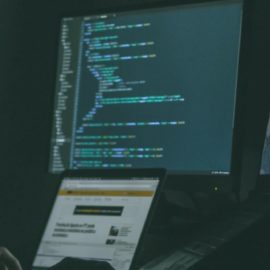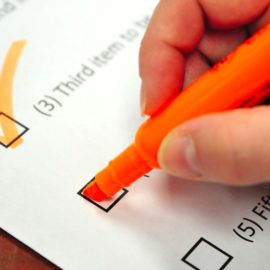

This article is an excerpt from the Shortform book guide to "Antifragile" by Nassim Nicholas Taleb. Shortform has the world's best summaries and analyses of books you should be reading.
Like this article? Sign up for a free trial here .
What is antifragile mothering? How can parents help their children become more antifragile?
For antifragile mothering or parenting, Taleb discusses the idea of education. Parents need to let children guide learning and think of mistakes as investments for future success.
Keep reading for antifragile mothering and parenting ideas.
Antifragile Mothering
People who learn from textbooks and worksheets will have rigid, fragile knowledge that they can’t apply in real-world settings. To illustrate the point, Taleb discusses his own learning, which was split between formal schooling and voraciously reading whatever interested him at any given moment.
Chapter 17 discusses the important difference between knowledge and probability—or “truth”—and outcomes. The key point is that people base their decisions on outcomes, no matter how unlikely those outcomes may be. Furthermore, every outcome has either more upside than downside, or vice versa; in other words, we’re fragile or antifragile to the result. Seeking good outcomes and avoiding bad ones guides our actions far more than any concept of objective truth.
Antifragility in Learning
There are two main types of learning: ludic, which is arranged like a game with rules and scorekeeping; and ecological, the natural method of learning by doing. Notably, there’s very little crossover between these two areas—skills that one develops through a game often don’t carry over into real life. For example, there’s little evidence that chess grandmasters think or strategize any better than anyone else when away from the chessboard. However, many people don’t apply that same idea to skills learned in school, or through closely structured activities.
The biologist E.O. Wilson was quoted as saying that the biggest threat to children’s development was the soccer mom. Wilson said that soccer moms repress children’s natural love of living things; they stop their kids from playing in the dirt, picking up insects, and so on.
However, the real problem with soccer moms is that they try to eliminate trial and error from their children’s lives. They make a map and demand that the kids follow it exactly, which might turn them into good students, but makes them unable to handle the ambiguity and changeability of real life.
The best kind of education is the one kids pursue themselves. Ideally, through browsing a library at home, picking out whatever topics interest them, and augmenting that with trial and error in the real world. Children are natural autodidacts—self-teachers—and that should be encouraged rather than repressed.
Antifragile Mothering: Think of Errors Are Investments
With all this talk of options and chance, one could be excused for thinking that the world progresses almost completely randomly. However, that’s not the case. Whether you’re looking at evolution, politics, or scientific discovery, the world progresses through trial and error.
While it can look a lot like pure randomness, trial and error must be guided by rationality. For a mundane example, if you’ve misplaced your wallet, finding it is a matter of trial and error. You start with where it’s most likely to be, and work your way through ever-less-likely locations until you find it. You also don’t tend to look in the same place multiple times, which could easily happen if your search pattern were completely random.
The treasure hunter Greg Stemm used a more codified version of the same strategy to make his finds, including the sunken Spanish frigate Nuestra Senora de las Mercedes, which was carrying cargo worth a billion dollars in today’s money. Stemm would start by outlining the area where his target could possibly be, and break it down into smaller chunks by how likely he thought it was that the ship would be there. He’d start with the most likely spot, and search each of those subsections extremely thoroughly, only moving on when he was completely certain the ship wasn’t there.
In both situations, the key point is that every error yields useful information. While Stemm might have spent weeks searching a particular area and coming up (seemingly) empty, he would then know that the treasure isn’t in that spot. With that information, every subsequent place he checked had a greater and greater chance of paying off. The time and money he spent searching those places wasn’t lost, it was invested.
Searching for a lost item is an easy way to illustrate this concept, but it applies to practically all forms of discovery and invention. Everything that doesn’t work gets you closer to figuring out what does. The key to making it work is, as we’ve discussed, minimizing your costs and downsides while maximizing your profits and upsides.
The Fragility of “Me”
Another modern trend—only dating back to the Enlightenment—is the fear of death. Ancient literature is filled with stories of great heroes seeking not immortality, but a good and honorable death.
People back then saw themselves as part of the larger whole of humanity, defined by what they contributed to the world and the children who survived them. The idea that the individual is the most important thing, and that each individual should be preserved as long as possible, is quite a recent one.
An individual life is naturally a fragile thing. It has to be, in order for the species to be antifragile—remember that antifragility can only occur after damage. Though scientists continue to artificially lengthen life, and some even seek the keys to immortality, we’re not meant to live forever as the sick, fragile animals that we are. We’re meant to live well, and then die to make room for others.

———End of Preview———
Like what you just read? Read the rest of the world's best book summary and analysis of Nassim Nicholas Taleb's "Antifragile" at Shortform .
Here's what you'll find in our full Antifragile summary :
- How to be helped by unforeseen events rather than harmed by them
- Why you shouldn't get too comfortable or you'll miss out on the chance to become stronger
- Why you should keep as many options available to you as possible






